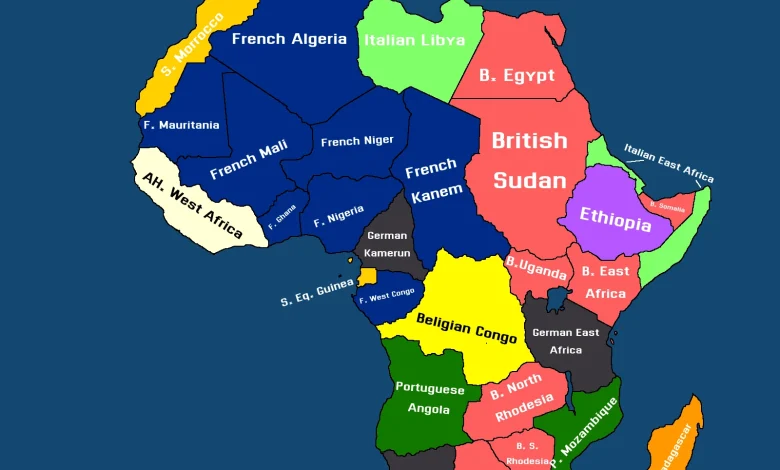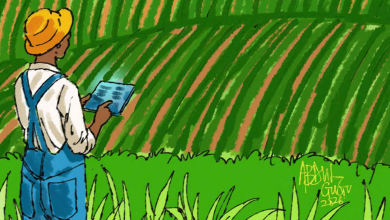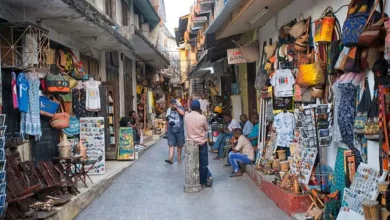A Century after the Scramble for Africa, The new battle is for Global Power

AFRICA: A CENTURY after European empires carved up the continent in the infamous Scramble for Africa, a new geopolitical contest is unfolding—this time global in scope, but once again rooted in Africa’s strategic minerals.
From the cobalt fields of the Democratic Republic of Congo to Tanzania’s emerging rare earth and graphite corridors, global powers are repositioning themselves in a race that African analysts warn mirrors the coercive tactics of an earlier era.
The tools have changed—diplomacy, security cooperation, financial leverage—but the strategic intent, they say, feels strikingly familiar.
In the DRC, cobalt, coltan and rare earths have done little to uplift the population that sits atop them. Instead, the wealth beneath the soil has turned provinces into theatres of war, where armed groups—some indirectly enabled by external interests—sustain cycles of violence that keep extraction cheap and accountability distant.
The UN Group of Experts on the DRC noted in its 2023 assessment that “mineral supply chains continue to provide revenue to both non-state armed groups and individuals with connections to political and business actors.”
One Congolese civil society leader captured the tragedy bluntly: “Our minerals are a blessing to everyone except the people who own the land.”
This pattern of strategic pressure is not confined to conflict zones. It is resurfacing in countries where stability and institutional strength once served as shields.
Tanzania—now a rising actor in graphite, nickel, helium and rare earths—has found itself increasingly courted and occasionally cornered by powers eager to lock in long-term access.
Diplomatic missions multiply, investment pledges escalate, and technical partnerships expand, yet behind the language of “cooperation” lies unmistakable geopolitical maneuvering.
The late Kwame Nkrumah warned in 1965 that “neocolonialism is the worst form of imperialism because it gives the illusion of independence.”
His words echo as Western, Chinese and Middle Eastern actors intensify competition for minerals essential to semiconductors, electric vehicles and next-generation military technologies.
ALSO READ: Africa Benefits from Brics Investments
Africa is no longer just a resource frontier—it has become a central arena in a worldwide struggle for industrial and political supremacy.
Tanzania, admired for its political stability, now confronts heightened lobbying for regulatory shifts and long-term concessions.
In the 1970s, Julius Nyerere cautioned against foreign assistance that masks influence, saying: “We must guard against the subtle pressures which come in the guise of aid or friendship, for the purpose is influence, not partnership.”
His warning resonates as external players challenge policies that prioritize local content, value addition, and sovereign control.
Security cooperation adds another layer. The United States maintains that AFRICOM exists solely for counterterrorism and maritime security.
Yet critics like Professor Horace Campbell argue that its expanding footprint overlaps conspicuously with mineral-rich regions, warning of “the militarization of U.S. policy on the continent under the cover of security while economic interests are pursued.”
Washington denies resource motives, but the perception shapes politics from Dar es Salaam to Kinshasa.
Behind the military ties are subtler economic levers. Ratings agencies, compliance bodies and donor institutions frequently shape how capital flows into African markets.
When governments explore diversified partnerships—especially with non-Western powers—warnings swiftly emerge about “debt distress,” “autocratic drift” or “opaque deals.”
The African Union Peace and Security Council has cautioned repeatedly that external actors “interfere in domestic political processes under the guise of support,” a pattern many African leaders argue undermines sovereignty.
This system of influence is rarely overt. It arrives through loan conditions, technical assistance, NGO frameworks, investment arbitration rules, and diplomatic pressure dressed in developmental language.
One East African diplomat summarized the imbalance starkly: “When you comply, they call you a partner. When you negotiate, they call you a problem.”
For many Africans, these dynamics reflect what Frantz Fanon described as the lingering “germs” of imperialism that must be identified and removed.
Today, those “germs” appear in governance benchmarks, security alignments, and narratives that portray African self-assertion as instability.
When African nations push for fairer contracts or greater value addition, critics label the moves “resource nationalism,” even though such policies are standard in developed economies.
Yet the continent is no longer passive. Tanzania, Namibia, Zambia, Botswana, Rwanda and South Africa are strengthening mining legislation, renegotiating legacy contracts, and insisting on local processing.
The African Continental Free Trade Area, still in progress, offers a framework to avoid the fragmented negotiations that weakened Africa in earlier resource eras.
Youth movements, policy think-tanks, and civil society are increasingly vocal in demanding that Africa become a price setter, not a price taker.
As Nyerere famously reminded the world: “Africa must not be satisfied with crumbs from a rich man’s table; we produce much of the world’s wealth, so we must control it.” His words capture the stakes of the present moment.
The global transition to clean energy, digital infrastructure, and advanced manufacturing is impossible without African minerals.
And yet, without strong governance and collective strategy, Africa risks repeating a long and painful historical pattern.
The new scramble for Africa is here—but so is a new Africa: more aware, more assertive and far less willing to be managed.
A century after the first scramble, the contest is no longer for Africa alone.
It is a struggle for global power—and once again, Africa sits at the heart of it.






The Russian army also lost 11,366 (+3) tanks, 23,620 (+5) armored combat vehicles, 34,626 (+41) artillery systems, 1,549 (+0) multiple launch rocket systems, 1,248 (+0) air defense systems, aircraft – 428 (+0), helicopters – 347 (+0), UCAVs – 83,769 (+431), cruise missiles – 3,981 (+0), ships/boats – 28 (+0), submarines – 1 (+0), vehicles and tankers – 68,006 (+84), special equipment – 4,003 (+0).
The Russian army also lost 11,366 (+3) tanks, 23,620 (+5) armored combat vehicles, 34,626 (+41) artillery systems, 1,549 (+0) multiple launch rocket systems, 1,248 (+0) air defense systems, aircraft – 428 (+0), helicopters – 347 (+0), UCAVs – 83,769 (+431), cruise missiles – 3,981 (+0), ships/boats – 28 (+0), submarines – 1 (+0), vehicles and tankers – 68,006 (+84), special equipment – 4,003 (+0).
The Russian army also lost 11,366 (+3) tanks, 23,620 (+5) armored combat vehicles, 34,626 (+41) artillery systems, 1,549 (+0) multiple launch rocket systems, 1,248 (+0) air defense systems, aircraft – 428 (+0), helicopters – 347 (+0), UCAVs – 83,769 (+431), cruise missiles – 3,981 (+0), ships/boats – 28 (+0), submarines – 1 (+0), vehicles and tankers – 68,006 (+84), special equipment – 4,003 (+0).